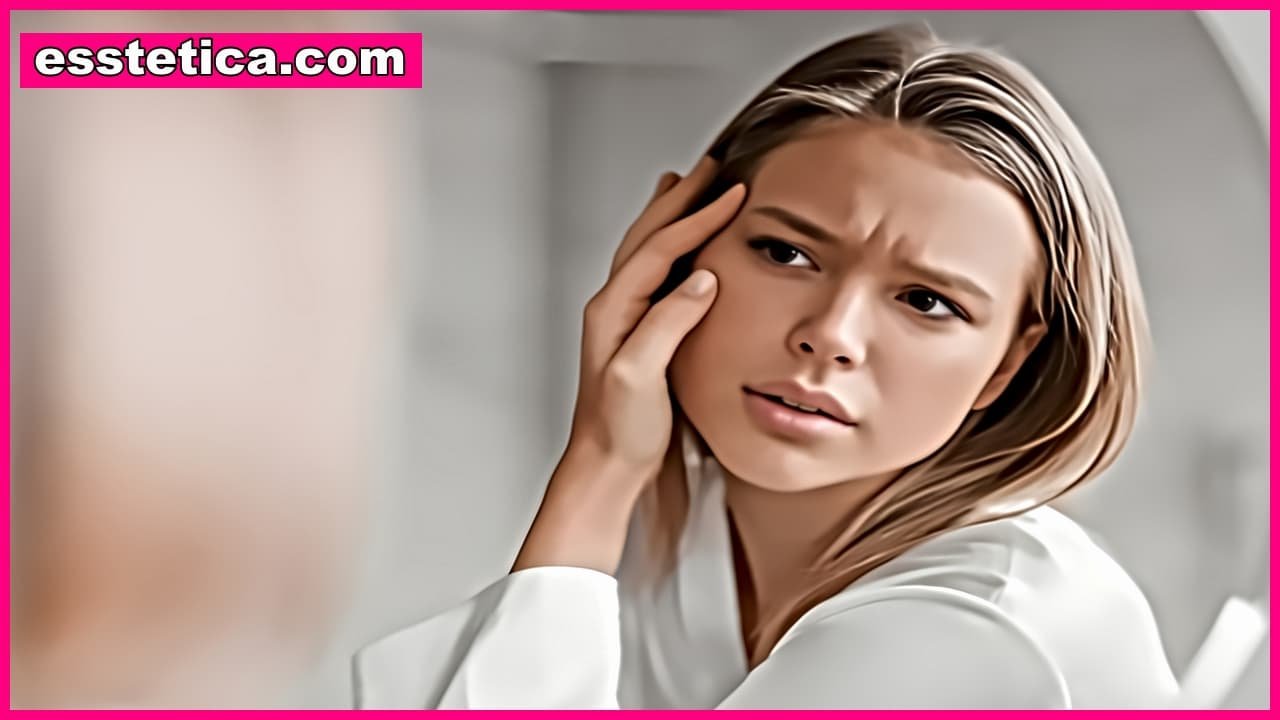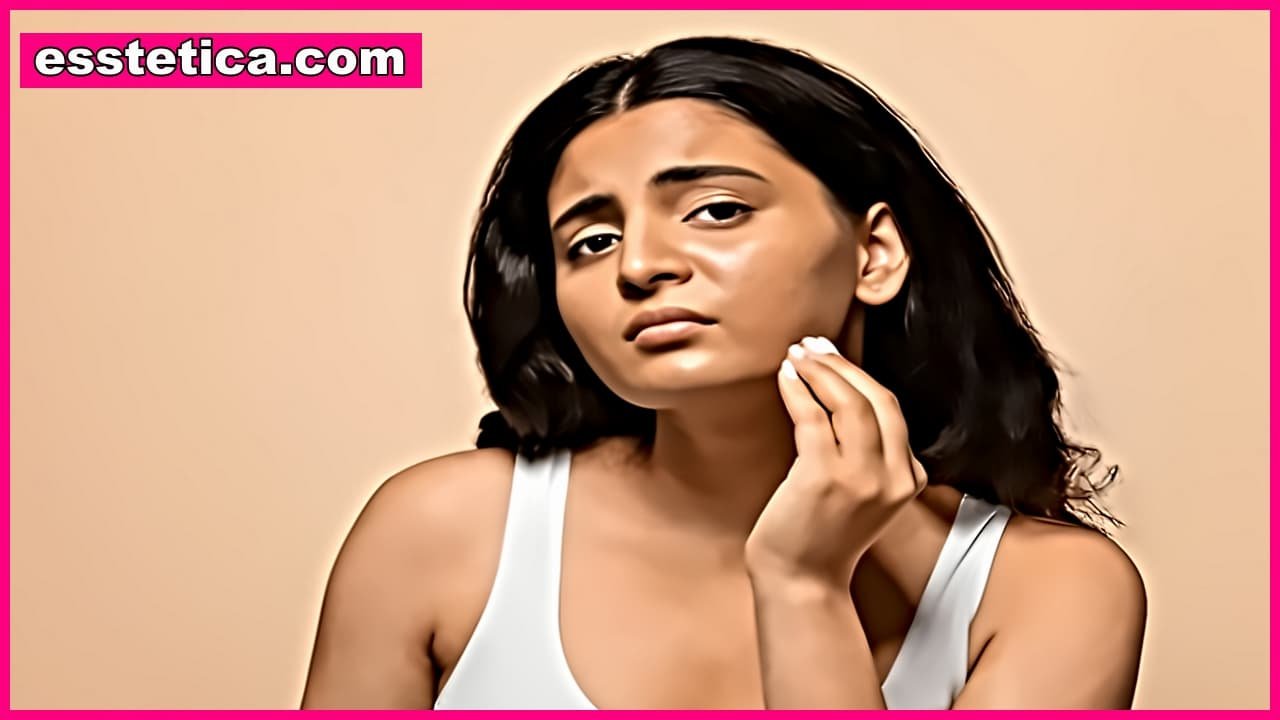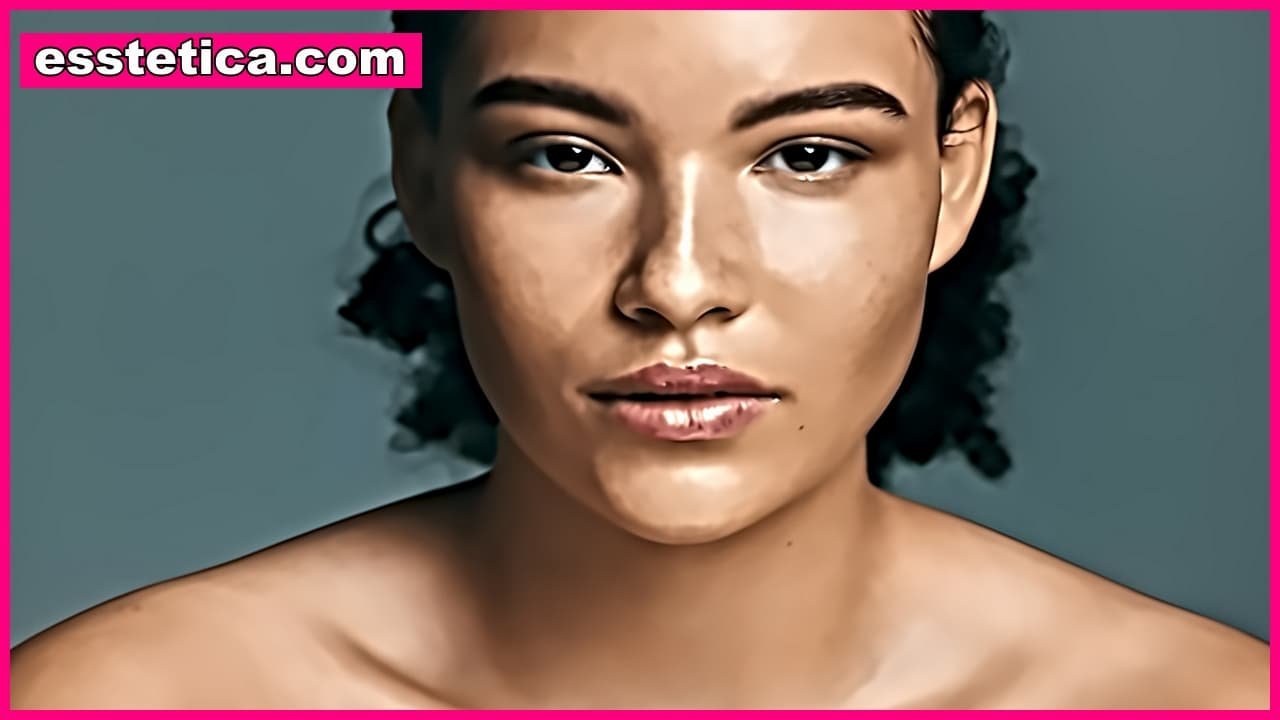Introduction
You’re sitting there, trying your best not to touch your face — and then it starts. That subtle, infuriating itch right where your latest breakout decided to pop up. It’s almost as if your skin is taunting you: “Go ahead, scratch me.”
But wait… does that mean something? Some swear that when acne itches, it’s a sign of healing — like the body’s way of telling you the inflammation is dying down. Others worry it means infection, irritation, or worse.
So, what’s really going on under your skin when acne starts to itch? Is it truly a good sign — or a red flag?
Let’s break down the science, the myths, and the practical steps to deal with that maddening itch without setting off another breakout.
Understanding Why Acne Itches
Itching — the Body’s Built-In Alarm System
Before we talk healing, let’s talk biology.
When your skin itches, it’s usually because your body is releasing histamines — chemical signals that tell your brain, “Something’s happening here.”
Histamines are part of your immune response. They can signal inflammation, dryness, or even new tissue growth. That’s why itching can mean two very different things: irritation or recovery.
Why Acne Starts Itching in the First Place
The most common reasons include:
-
Inflammation:
Acne begins when your pores get clogged with oil and bacteria. Your immune system responds by flooding the area with inflammatory cells — histamines included. The result? Redness, swelling, and that pesky itch. -
Healing Process:
As pimples start to heal, new skin cells form underneath. This regeneration can cause a tight, tingly, or itchy sensation — much like how a healing cut sometimes itches. -
Dry or Over-Treated Skin:
Acne treatments like benzoyl peroxide, salicylic acid, or retinoids strip the skin of moisture. When your barrier dries out, it gets sensitive and itchy. -
Allergic or Irritant Reactions:
If the itching is intense or sudden, your skin might not like something you’re using — maybe a new serum, cleanser, or even detergent residue on your pillowcase. -
Environmental Factors:
Changes in humidity, temperature, or sweat buildup can trigger itching in acne-prone areas, especially if the skin barrier is already weak.
So… When Acne Itches, Is It Healing?
The Short Answer: Sometimes, Yes. But Not Always.
Itching can be part of the healing phase — but it’s not a guarantee.
It depends on why it’s itching and how your skin looks while it’s doing it.
Let’s explore both sides.
When Itching Does Mean Healing
You might be in the clear (literally) if:
-
The pimple is shrinking, not spreading.
-
The area feels tight, not sore or burning.
-
The redness is fading and the skin looks drier or smoother.
-
You recently stopped picking at a pimple, and the scab is forming or falling off.
That mild, tickly feeling? It’s often your skin’s way of saying, “I’m rebuilding.”
When your immune system calms down and your body starts producing new collagen, it’s common to feel a faint itch — a signal that repair is underway.
Think of it like your skin knitting itself back together.
When Itching Means Trouble
On the other hand, if the itch is intense, painful, or spreading — it’s a warning sign. Here’s what it could mean:
-
Ongoing inflammation: The pimple might still be active or infected.
-
Allergic reaction: If the skin looks red, bumpy, or swollen, it could be reacting to a product.
-
Overdrying: Too many harsh treatments can strip away your barrier, making skin more sensitive.
-
Fungal acne: These bumps itch a lot and often appear in clusters, especially on the forehead, chest, or back.
Bottom line: mild, occasional itching = probably healing.
Persistent or worsening itching = irritation or imbalance.
The Science of “Healing Itch”
What’s Actually Happening Beneath the Surface
When acne lesions heal, your body ramps up:
-
Blood flow to bring in nutrients and immune cells.
-
Collagen production to rebuild tissue.
-
Cell turnover to replace damaged skin.
This regeneration process can overstimulate nerve endings in the skin — and that’s what creates the itchy or tingling sensation.
So yes, a bit of itch can mean your skin is rebuilding itself. But remember: healing doesn’t require scratching.
What You Should Never Do When Acne Itches
1. Don’t Scratch — Ever
It’s tempting, but scratching breaks the fragile healing tissue, spreading bacteria and increasing your risk of scars or dark marks.
If you must do something, press gently or use a cool compress instead.
2. Don’t Overload on Treatments
When acne itches, many people panic and pile on more products — thinking it’ll speed up healing.
In reality, that just makes it worse.
Too much exfoliation, too many acids, or frequent washing will damage your barrier and make the itching intensify.
Stick to the essentials:
-
Gentle cleanser
-
Hydrating, non-comedogenic moisturizer
-
SPF during the day
Let your skin rest.
3. Don’t Pop or Pick
It might feel like relief for a second — but you’re actually pushing bacteria deeper, triggering new inflammation, and possibly causing long-term scars.
Remember: itching is not an invitation.
What to Do Instead: Calming the Itch Safely
1. Hydrate and Moisturize
Dry skin = itchy skin.
Use lightweight, oil-free moisturizers with ingredients that soothe and repair, like:
-
Ceramides – strengthen your barrier
-
Niacinamide – reduces redness and inflammation
-
Aloe vera – naturally cools and calms
-
Panthenol (Vitamin B5) – promotes healing
Even oily or acne-prone skin needs moisture — skipping it only worsens sensitivity.
2. Try a Cool Compress
Wrap an ice cube in a soft cloth and press it gently on the itchy area for 1–2 minutes.
This numbs nerve endings and reduces inflammation instantly — no scratching required.
3. Simplify Your Routine
When your skin is healing, minimalism wins.
Avoid heavy actives like retinoids or exfoliating acids for a few days. Stick to:
-
A mild, sulfate-free cleanser
-
Moisturizer
-
Sunscreen
Once the itching subsides, you can slowly reintroduce treatments.
4. Check for Product Sensitivities
If your acne only itches after using a certain product, you may have a contact allergy or irritant reaction.
Try the “elimination method”: stop one product at a time and watch how your skin reacts.
Look for fragrance-free, alcohol-free formulations whenever possible.
5. Consider Anti-Inflammatory Ingredients
Calming products can make a world of difference. Look for:
-
Green tea extract – antioxidant and soothing
-
Centella Asiatica (Cica) – reduces itching and redness
-
Colloidal oatmeal – relieves irritation
-
Licorice root extract – helps fade marks while calming skin
These are gentle, skin-friendly, and support the healing process without clogging pores.
When to See a Dermatologist
If your acne itch:
-
Is persistent or severe
-
Comes with pain, swelling, or pus
-
Spreads rapidly
-
Doesn’t improve with gentle care
…it’s time to get professional help.
A dermatologist can determine whether your acne is:
-
Bacterial
-
Fungal
-
Allergic
-
Or something else entirely
They might prescribe a mild topical steroid, antihistamine, or antibiotic cream to calm things down.

✅ Struggling with acne? Discover the 2 natural solutions I personally recommend:
👉 Get Ninja Health Now — Launch Your Health Site in 60 Seconds
Healing vs. Irritation: How to Tell the Difference
| Signs It’s Healing | Signs It’s Irritated or Worsening |
|---|---|
| Mild, occasional itch | Constant, burning itch |
| Skin looks smoother | Skin looks red, inflamed |
| Redness fading | Redness spreading |
| No new bumps | New bumps forming |
| Feels tight but calm | Feels hot, sore, or stinging |
If your symptoms fall more on the right side, it’s time to pause actives and soothe your barrier.
Natural Remedies for Itchy, Healing Acne
If you prefer gentle, home-based care, these options can help ease the itch without irritation:
1. Aloe Vera Gel
Cool, anti-inflammatory, and hydrating — ideal for healing acne. Use pure aloe (no alcohol or dyes) and apply a thin layer before bed.
2. Green Tea Toner
Steep a green tea bag, let it cool, and use the liquid as a soothing facial rinse. It’s rich in antioxidants and calms inflammation naturally.
3. Honey Mask
Raw honey has antibacterial and moisturizing properties. Apply a light layer for 10 minutes, rinse with warm water, and enjoy the soft, calm finish.
4. Cucumber Slices
They aren’t just for spa selfies — cucumbers contain natural cooling enzymes that can relieve the itch almost instantly.
How to Prevent Acne Itch in the Future
-
Moisturize consistently – especially if you use drying treatments.
-
Use lukewarm water, not hot, when washing your face.
-
Avoid fragrance-heavy products.
-
Stay hydrated — your skin mirrors your internal moisture.
-
Sleep on clean pillowcases — bacteria and oils can trigger irritation.
-
Don’t skip sunscreen — UV damage delays healing and increases sensitivity.
These habits don’t just stop itching — they help your skin stay calm and clear long-term.
Frequently Asked Questions
Does Itchy Acne Mean It’s Getting Better?
Sometimes, yes. Mild itching often signals healing. But intense itching usually means irritation — check for dryness or sensitivity.
Should I Use Hydrocortisone for Itchy Acne?
Only under a doctor’s advice. While it reduces itch and inflammation, it can also thin the skin or worsen acne with long-term use.
Why Does My Acne Itch More at Night?
At night, your skin temperature rises slightly, your histamine levels increase, and you’re more aware of sensations — making the itch feel stronger.
Can Itchy Acne Be Fungal?
Yes. Fungal acne itches far more than bacterial acne. If you have small, uniform bumps that don’t respond to regular treatments, see a dermatologist.
Final Thoughts: When Acne Itches, Listen to Your Skin
Itching can be both a sign of progress and a warning signal — the key is learning which is which.
If your acne is shrinking, fading, and just mildly ticklish, you’re likely in the clear. Your skin is healing, rebuilding, and renewing itself.
But if the itch turns into irritation, don’t push harder — pull back. Simplify, hydrate, and protect your barrier. Healing skin doesn’t need aggression; it needs balance.
So the next time you catch yourself wondering “when acne itches, is it healing?” — remember this: a little itch might mean your skin’s on the mend, but real healing happens when you treat your skin with patience, care, and calm.
✅ Struggling with acne? Discover the 2 natural solutions I personally recommend:
👉 Get Ninja Health Now — Launch Your Health Site in 60 Seconds
YOU MAY ALSO LIKE:





